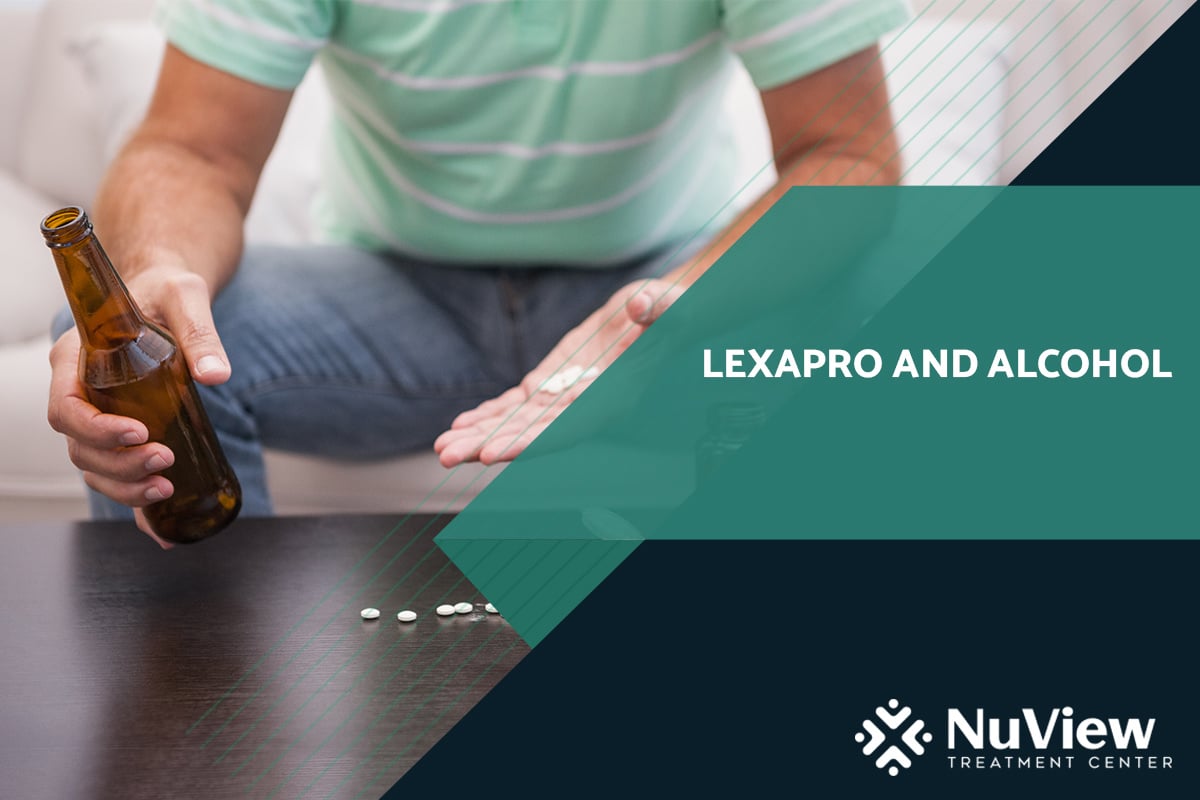What is Alcohol Use Disorder?
Alcohol Use Disorder (AUD) is a severe and chronic condition that involves compulsive or uncontrollable consumption of alcohol, regardless of the negative effects incurred on the consumer's health, social life, or everyday responsibilities. Alcohol-related problems include a variety of alcohol issues ranging from what one may call alcohol abuse alcoholism, and alcohol dependence, among others.
According to the 2022 National Survey on Drug Use and Health, there were 28.8 million adults living with AUD in the United States, with 11.2% of adults above eighteen. AUD may vary, with ranges such as mild, moderate, or severe depending on frequency, severity, and dependency, with severe cases often labeled as alcoholism.
Signs and Symptoms of Alcohol Use Disorder
Alcoholism symptoms can be behavioral, emotional, or physical, often leading to significant daily disruptions. Some common signs and symptoms are:
- An intense urge or craving to drink alcohol.
- Drinking more than intended or for longer than planned.
- Using up more time than expected in getting or drinking alcohol or recovering from alcohol.
- There is continued use of alcohol even when relationships, work, or the health of individuals are at risk.
- Had to drink more than before in order to feel the same high last time.
- When a person cannot drink, they feel nausea, sweating, shaking, or even anxiety.
- Neglecting work, school, or even everyday duties around the house due to heavy drinking.
- Not going out for any activity or just staying at home and drinking instead.
- Drinking alcohol while driving or operating machinery or equipment.
Get Started With Nuview Treatment Center
Our dedicated professional staff is here to guide you or your loved one on the journey to lasting recovery, offering support every step of the way.
Causes and Risk Factors of Alcohol Use Disorder
Several factors interact to cause Alcohol Use Disorder:
- Persons with a family history of alcohol problems demonstrate an increased risk of developing AUD.
- Generally, AUD is comorbid with a variety of mental states such as depression, anxiety, schizophrenia, or bipolar disorder.
- Long-term binge drinking combined with brief periods of abstinence
- The habit of alcohol consumption, especially binge drinking from early age.
- Peer pressure, a partner who regularly consumes alcohol.
- Those who have gone through traumatic experiences, whether psychological or physical
- Such stressful life events as losing one's job or separation from a partner.
- Social groups or media that provide and promote excessive alcohol consumption or cultural background in which heavy drinking is practiced and idolized rather than condemned.
Complications of Alcohol Use Disorder
Complications of AUD are severe and affect physical health and overall well-being.
Alcoholic Liver Disease (ALD)
ALD usually has been associated with alcohol abuse, alcoholic hepatitis, and post-hepatitis liver condition with cirrhosis, characterized by the development of irreversible fibrosis of the liver parenchyma.
Mental Disorders
Relapse and AUD contribute to the development of disorders such as major depression, anxiety, and other conditions or worsen previously existing problems.
Heart Diseases
The heart has also been known to be affected by or develop a structural disease known as alcoholic cardiomyopathy, or AC, which has been defined as the weakening of the heart muscle with the possibility of heart failure. Increased systolic blood pressure and increased chances of stroke are also common among heavy drinkers.
Neurological Impairments
Alcohol abuse can lead to damage to brain cells and the cerebellum, resulting in impairments in movement and body balance, and may further result in irreversible brain damage.
Gastrointestinal Problems
Prolonged use of alcohol results in gastritis, pancreatitis, and increased risk of esophageal cancer.
Immunosuppression
The over-consumption of alcohol suppresses the body's immune system and exposes it to diseases and infections.
What are Treatments for Alcohol Use disorder?
For effective alcohol addiction treatment, personalized plans are essential. At NuView, we offer evidence-based treatments tailored to each individual, including therapy, medication, and support programs to ensure lasting recovery.
Medications
Basically, there are three major FDA-approved medications for the management of AUD symptoms: these include naltrexone, acamprosate, and disulfiram. Non-addictive medicines work to control withdrawal signs, physically facilitate cravings, or prevent recurrence. Such therapy is typically combined with behavioral therapies to enhance its effectiveness.
Behavioral Treatments
These treatments are also referred to as alcohol counseling or talk therapy, for one works with a licensed therapist to alter one's drinking behavior. Counselors put into practice various treatments such as cognitive-behavioral therapy (CBT), motivational enhancement therapy, and mindfulness-based therapies.
Mutual-Support Groups
The other way of treatment is a mutual support type of treatment whereby self-help groups, such as Alcoholics Anonymous – specifically, what most recovering people refer to as 'the fellowship' – support the individual through their sobriety. These groups are in addition to formal treatment and can be found face-to-face and online.
Outpatient Programs
Treatment can be suggested anywhere between outpatient care, provided by facilities like Nuview, and even more intensive outpatients for more excessive treatment and support, depending on the condition.
Get Started With Nuview Treatment Center
How can I Prevent Alcohol Use Disorder?
Prevention of Alcohol Use Disorder is key to reducing the long-term impacts brought forth by alcohol use. Early intervention, particularly at the adolescent stage, plays a great role in reducing the risk of developing AUD later in life. Here is how to prevent alcohol use disorder:
- It is important to be aware of the risks associated with alcohol use, and early warning signs are necessary for problematic drinking.
- Examples of activities that may prevent AUD are wellness-promoting and stress-reducing activities, social engagement in maintaining social connections, and hobbies or physical activities.
- Parents can also play a preventive role in the early onset of drinking by setting a good example and discussing the consequences of alcohol use with the teenager. Establishing clear rules about alcohol use and the consequences of breaking them is also effective.
- Building a healthy, supportive social network around you can insulate you from AUD by discouraging excessive drinking and engaging you in healthy behavior.
When to Seek Professional Help
Knowing when to start looking for professional help is very important to the management of Alcohol Use Disorder. If you or anyone you know has trouble with alcohol consumption and show the following behavior, then help may be needed:
- If you have tried to cut back or even quit from drinking and it has not worked, then professional help must be obtained.
- Alcohol misuse and other harmful behaviors that negatively impact work, relationships, or health signal the need to seek help from health or substance use professionals.
- Physical withdrawal symptoms or a noticeable decline in mental or physiological wellness stemming from alcohol use are clear signs that professional help is necessary.
At Nuview, we understand the challenges of overcoming AUD and offer compassionate, evidence-based care to support you on your journey to recovery. Seeking help early can make a significant difference in outcomes, and we're here to guide you every step of the way.
Treatment Options for Alcohol Withdrawal
The goal of treatment for alcohol withdrawal is to reduce withdrawal symptoms, prevent complications like seizures, and treat alcohol use disorder. Hence, medication is something very important.
For mild to moderate alcohol withdrawal symptoms, short-term medications like carbamazepine, gabapentin, and benzodiazepines are prescribed.
In cases of severe alcohol withdrawal, hospitalization is required. Usually, the person is kept in the ICU where they will be monitored and long-acting benzodiazepines are usually administered.
While medication helps in combating the symptoms of alcohol withdrawal, they cannot treat the main reason for alcohol withdrawal, which is alcohol use disorder or AUD. AUD treatment requires a combination of psychotherapy and medication to prevent relapse and promote sober living. Psychotherapeutic interventions include:
Cognitive Behavioral Therapy – Here, the triggers that can contribute to drinking are identified, and coping skills are provided so as to not resort to drinking again.
Motivational Interviewing – The goal of motivational interviewing is to instill the motivation required to change drinking-related behaviors. Some ways to do this are by identifying the pros and cons of change, making the changes, building confidence, and developing skills that are necessary to stick to recovery.
Mindfulness Therapy – Focuses on developing strategies that lead to flexible responses to triggers that can lead to drinking rather than resorting to impulsive decision-making.
12-Step Recovery Programs – Informal peer groups like Alcoholics Anonymous follow a 12-step recovery program where people can come together, share their experiences, and take responsibility for their recovery. They are important for ongoing care and support.
- What is Alcohol Use Disorder?
- Signs and Symptoms of Alcohol Use Disorder
- Causes and Risk Factors of Alcohol Use Disorder
- Complications of Alcohol Use Disorder
- What are Treatments for Alcohol Use disorder?
- How can I Prevent Alcohol Use Disorder?
- When to Seek Professional Help
- Treatment Options for Alcohol Withdrawal
- What is Alcohol Use Disorder?
- Signs and Symptoms of Alcohol Use Disorder
- Causes and Risk Factors of Alcohol Use Disorder
- Complications of Alcohol Use Disorder
- What are Treatments for Alcohol Use disorder?
- How can I Prevent Alcohol Use Disorder?
- When to Seek Professional Help
- Treatment Options for Alcohol Withdrawal
Get Help Today!
Everyone is Welcome Here and We All Have Your Back
Your healing journey deserves a personalized approach. At NuView, we integrate expertise in behavioral therapy, mental health, and substance use treatment to create a customized recovery plan tailored to your unique needs.
Connect with our Admissions Specialists today.







Written By
Dr. Ryan Peterson